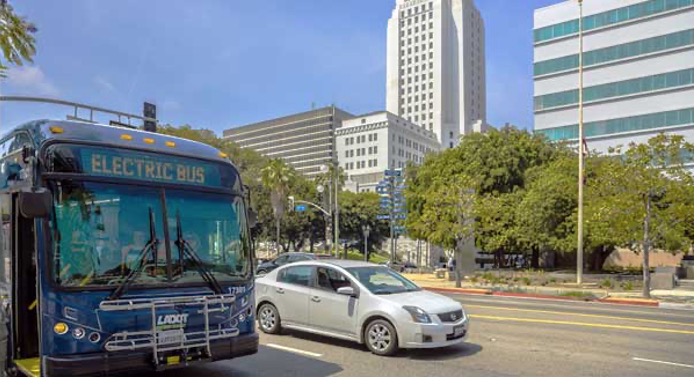CommentsLA WATCHDOG - There is a saying in Los Angeles that nothing gets done at City Hall without a lawsuit or ballot measure.
This is the case with the City’s Mobility Plan that was adopted with great fanfare by the City Council and Mayor in August of 2015. This transportation plan was designed to make our streets, the new bike and bus-only lanes, and our sidewalks and crosswalks safe for pedestrians, cyclists, bus riders, and all Angelenos over the next twenty years. The plan also called for creating a cleaner and healthier environment and providing affordable transportation options for all Angelenos.
Over the past seven years, the City has made very little progress, achieving only 3% of its actual goals. As a result, frustrated transportation and environmental advocates have collected enough signatures to place the Los Angeles Safe Streets for All Initiative (“Mobility Initiative”) on the March 5, 2024 ballot.
This is a very simple initiative. It requires the City to implement the Mobility Plan.
One important addition to the Mobility Plan involves enforcement. Under the Mobility Initiative, any individual may bring a civil action to compel compliance and that the court may award a prevailing party his or her costs of litigation, including reasonable attorney fees. [Note: This enforcement provision may be a major reason why the City Council did not adopt the Mobility Initiative that was based on the Mobility Plan that they approved in 2015.]
The Mobility Initiative has sparked a response from the City Council. On May 25, Nury Martinez and several other Councilmembers introduced a convoluted motion calling for the City Attorney to prepare the Mobility Plan Implementation Ordinance within 15 days. A new Unified Project Coordination Office would also be established to oversee implementation. There were also calls for other reports regarding implementation within 60 days. To date, there appears to be little activity on the ordinances and reports.
The Mobility Initiative alters the balance of power. Now the City Council is not in complete control. Now it must work with the Initiative’s sponsors. The City Council and the sponsors both need to consider the voters who will have the opportunity to accept or reject the Mobility Initiative or any other alternative measure cooked up by the City Council.
One of the issues that needs to be addressed is how to pay for the Mobility Plan and the $5 billion needed to repair our streets and sidewalks. Will this require an increase in our sales tax or a new parcel tax?
Over the next 18 months, we ask that the City Council and the Mobility Initiative’s sponsors be transparent in all their dealings, whether they involve the implementation of the Mobility Plan or any amended plan and the financial impact on Angelenos.
(Jack Humphreville writes LA Watchdog for CityWatch. He is the President of the DWP Advocacy Committee, the Budget and DWP representative for the Greater Wilshire Neighborhood Council, and a Neighborhood Council Budget Advocate. He can be reached at: [email protected].)
















